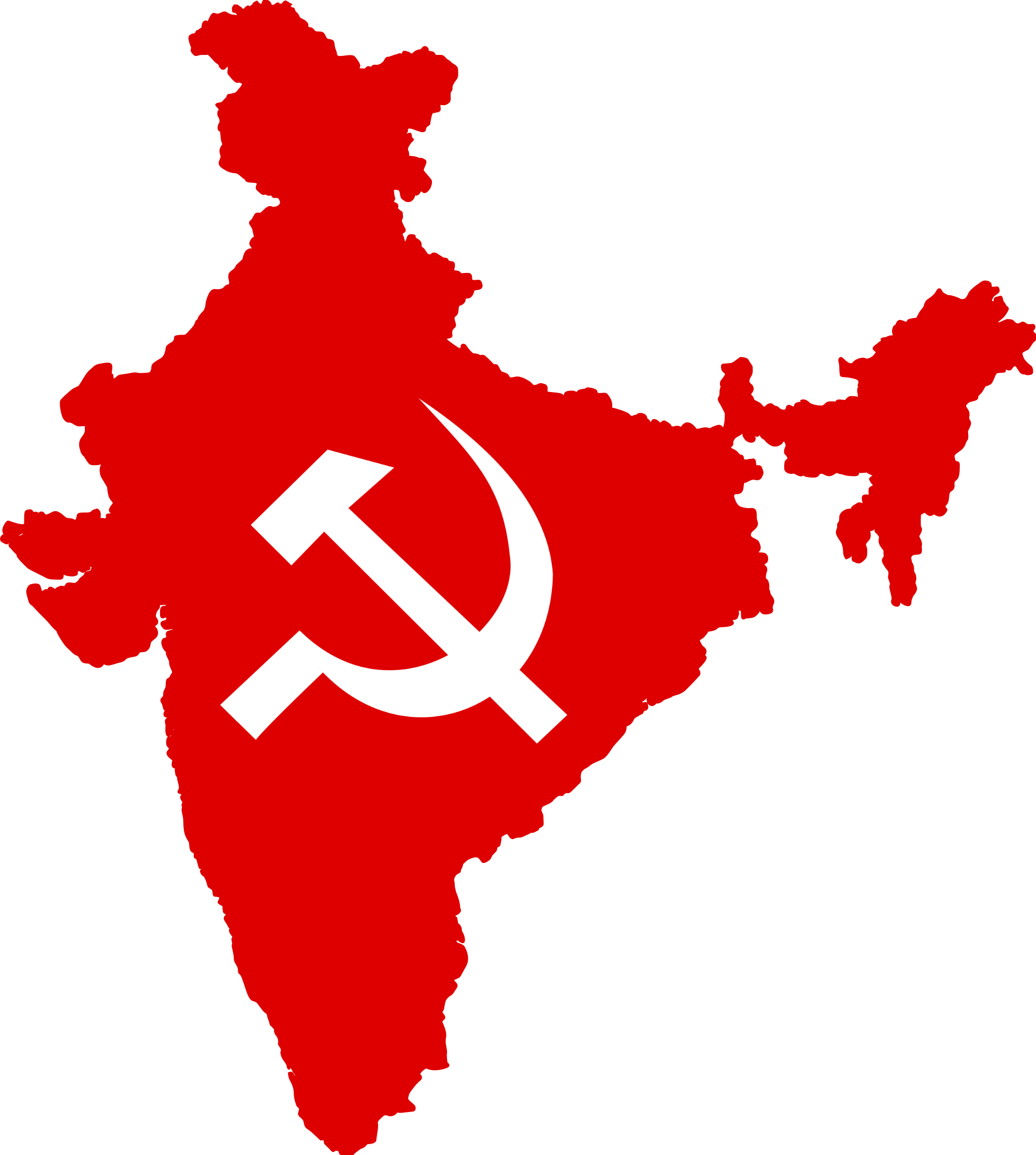
The entryist nature of the major Communist Parties in Nepal aside, the rarity of new leftist successes beyond AES following the end of the Cold War means that the condition of Nepal shouldn't be entirely dismissed out of hand outright, despite their lack of significant achievements following the dissolution of the armed struggle.
The country was an absolute monarchy for most of the Cold War. It slowly transitioned into a constitutional monarchy, a deal where the royals could be expected to retreat to their palace and parasitize off the public budget just like their welfare leech counterparts in Europe. Then, in 2001, their crown prince did a Romanov and went on a shooting massacre against his own family and parents in their palace, shooting the reigning king and queen. He then shot himself and his uncle became the new king. His autocratic obsession with reconsolidating monarchical institutional power stumbled against the shattered prestige of the Nepalese royalty due to this self-inflicted extermination of the royal household and this ultimately led to the complete abolition of the monarchy and the establishment of a republic in 2008.
Meanwhile, as this was happening, there was a Maoist People's War conducted through the leadership of the Communist Party of Nepal-Maoist after the government's violent suppression of attempted land reform in the 1990s. This period of armed struggle lasted twenty years from 1996 to 2006. The concession to liberal reformers by agreeing to a bourgeois liberal republic and a constituent assembly when the Maoists had the upper hand through its control of most of the countryside broke the party's unity and some of its founding members left afterwards who saw the party as having betrayed its goal of New Democracy. The armed wing of the Party, the People's Liberation Army of Nepal was also disbanded and eventually integrated with the national army.
This is the major contradiction between the two major Communist Parties: CPN-UML (Unified Marxist-Leninist) and CPN-MC (Maoist Center) with the rather plentiful breakway and splinter Communist Parties, who saw the 2006-8 establishment of the bourgeois republic as a betrayal of the armed struggle and comprador parliamentarianism.
You could say that the electoralist Communist Parties are merely working within the contradictions of the times. The establishment of a true New Democracy and an official Marxist-Leninist state during the 2000s right as the United States had its full attention on the region during its "War on Terror" nearby in Afghanistan would have been unwise. Nevertheless, despite the suppression of land reform in the 1990s having been the catalyst for the Nepalese People's War, there is still no comprehensive land reform in Nepal to this day, which can be directly attributable to the concession of the CPN-Maoists. Here is a criticism of the current "Land Bank" system, more akin to the liberal land reform of post-WW2 granted to Japan and Taiwan by the US as a concession to destroy socialist sentiment (the redistribution of land) than those of a socialist land reform (the breakdown of land relations, destruction of the landlord class and its intergenerational communal ties and power base).
Nevertheless, the difference between the Nepalese electoral entryism and that of the West's leftists is their strong territorial control of the countryside and their military power prior to their swerve towards entryist politics which prevented the liberals in the bourgeois republic from suppressing them like what was done to the CPI in Italy and the KKE in Greece or from outright ignoring and sidelining them like what was recently done to the so-called French left coalition NPF by Macron. As such, the only way to suppress the various leftists by the liberals is through the parliamentary system itself. This original leading position in the parliamentary system has now indeed been slowly eroded with the liberal "soc-dem" Nepali Congress party ending with the most seats in the 2022 election.
Geopolitically, Nepal is the Mongolia of the Himalayas, a country between two larger ones, but even worse geographically positioned. It is near entirely on the southern side of the Himalayas, meaning that it is almost completely dependent on India as a route to the sea and as a conduit for trade. It has been subjected to regular Indian interference, especially in its southern territories which are on the Gangetic plain and whose Madhesi ethnic minority population are said to be aligned more in interests with India than Kathmandu generally. India views Nepal as essentially a second Bhutan though slightly more "unruly," the latter being essentially an Indian client monarchy whose foreign affairs are completely dictated by New Delhi. The Indian manufactured annexation of the independent state of Sikkim right next door in 1973 has Nepal's principal foreign policy objective being to avoid that same outcome.
In 2015, the newly elected BJP Modi government of India blockaded Nepal following a constitutional reform that, according to it, disfavored the Madhesi ethnic minority. India was outraged because its appropriation of ethnic minority constituencies was how it had been able to annex Sikkim and this reform weakened its ability to repeat it in Nepal if it ever wanted to utilize the option. India then froze fuel and goods imports into Nepal, demanding that the constitution include clauses of self-determination and an autonomous territory for the Madhesi. This had the potential of a humanitarian disaster in the making as Nepal had just suffered an earthquake earlier in the year and it relied on fuel imports through India for heating in the winter months. It was at this point that Modi's India outplayed its hand and Nepal reached out to China. Nepal agreed to the construction of a railway linking Kathmandu to China's national rail system with China's rail gauge as a result of this blackmail. Nevertheless, a near decade long bureaucratic stalling has delayed the railway negotiations and construction which still continues to the present day. It was only in July of this year that an agreement was finally signed. As such, over 64% of Nepalese imports come from India and only 13% from China as of 2022, meaning that Nepal is still deeply dependent on India. It also recently signed during the Trump period the US State Department aid program, the Millennium Challenge Compact, as it allows for US infiltration of Nepal against China in the New Cold War.
This external dynamic has a sizeable dampening influence on the internal willingness of Nepal's Communist Parties to pursue more significant socialist reforms such as comprehensive land reform.








It's a deliberately chameleon-esque "theory" that obfuscates its Keynesian roots with the massive dollops of economic jargon that every "explanation" of the theory you'll encounter describing it indulges in. The end result is that its incomprehensibility leads to people ascribing to it what they want it to be, slapping whatever label they want onto it - a "theory" that works like mayonnaise, something supposedly "good on anything" - for all political ideologies.
For neoliberals and soc dems, it's the perfect bandaid for the ails of contemporary capitalism; for some leftists, it's not only "compatible" with socialism but they'd argue that historical socialism actually "sleepwalked" through the precepts of MMT "unknowingly." This is why you'd see some online leftists on the likes of Hexbear and Reddit who are very vocal on their support of "MMT." Some of the other comments in this thread actually represent the typical argumentation pattern of "leftist MMT" where they travel back in time to historically backdate past socialist economic successes as "representative" of "MMT in practice."
The "leftist" argument for MMT is therefore unfalsifiable because any historical or contemporary socialist economic policy with sovereigntist characteristics and state involvement can be appropriated and claimed as demonstrating "MMT in action, if not in name" just like how some Western Marxist historians once tried to untenably label every mildly populist historical figure from the Roman Republic like Julius Caesar as "proto-Marxist." TL;DR, "leftist MMT" would claim it's a DLC to classical Marxist economics when in reality, it's the Keynesian competitor.
In practice, MMT is the modern reincarnation of the FDR New Deal snake oil, something meant to provide a backstop to the contradictions of contemporary capitalism and divert popular attention from the real alternative of socialism, just as how the original New Deal suppressed support for the socialist path. I've written my immense skepticism on it before but here's a proper Marxist critique: